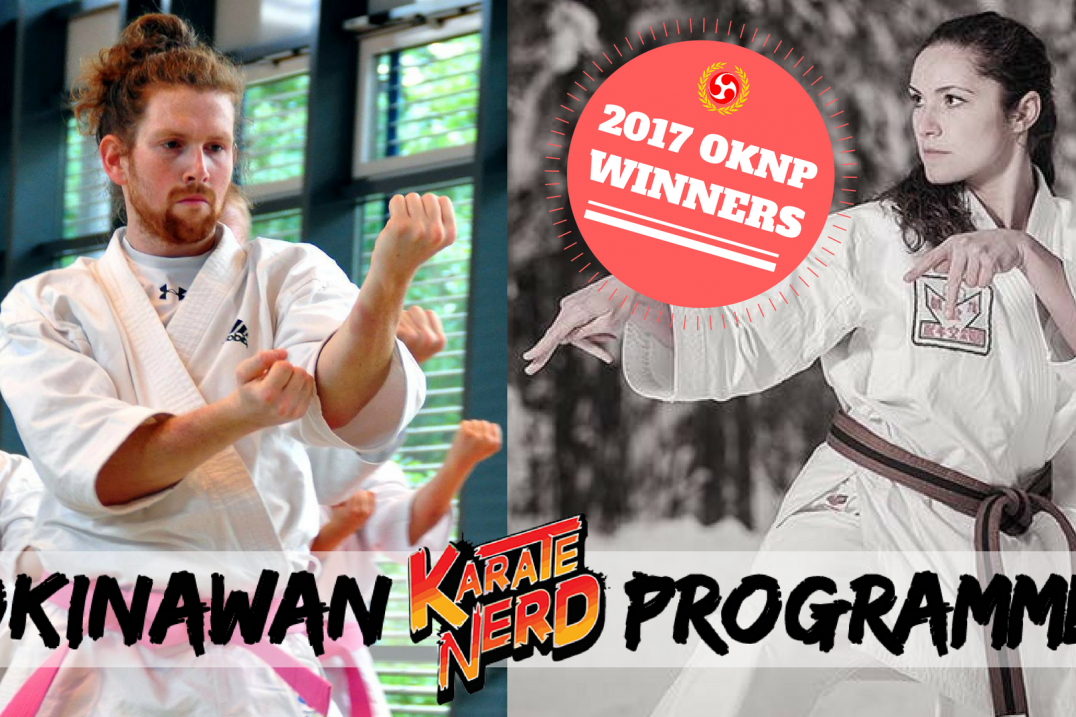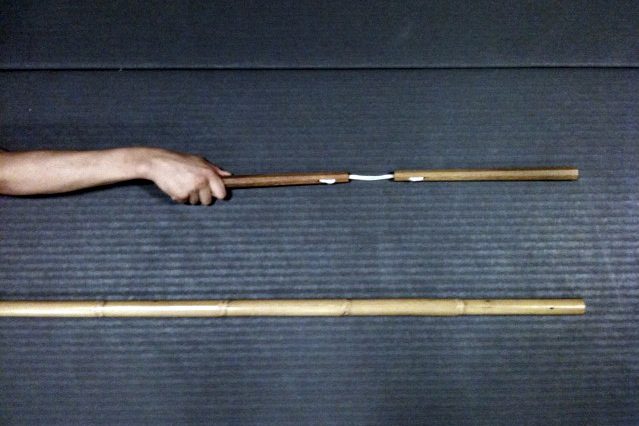Sometimes cultures clash in a more physical way than you wish for.
Like the other day when I was at the supermarket.
So there I was, strolling down the isle, searching for some high protein/low carb goodness (usually tuna), when a regular, totally ordinary, Japanese man quickly approaches from my right side.
My ninja sense immediately starts to tingle. I can sense that the dude wants to walk past me (I’m standing in the middle of the isle), to some products further away in the store. And there’s nothing strange with that, of course.
People walk past other people in supermarkets all the time, right?
So, since the isles were pretty narrow in this store, I back up a little – leaving him plenty of room to pass in front of me as I’m pretending to look interested in the canned tuna.
Big.
Frickin’.
Mistake.
You see, in Japan you never walk in front of other people. Like, say, if somebody is browsing books in a library, having a conversation with someone else, reading a sign, or basically doing anything which requires attention to the front, you never walk in front of that person. It’s highly disrespectful. So you walk behind them instead. Never in front.
Simple.
Except… I’m not Japanese.
“BOOM!”
The sound echoes in the supermarket as I totally unintentionally, yet surprisingly brutally, tackle the poor Japanese dude into the shelf behind me.
“Waah, sumimasen, gomen, daijoubu!?” I manage to blurt out before the now terrified Japanese man quickly puts his hand up (as in “don’t worry, I’m fine”), dusts his shoulders off, adjusts his Harry Potter glasses and just keeps on walking like nothing happened.
“Oops.”
Okay, no sweat. It was just an accident, could have happened to anybody. Lesson learned. I quickly decided that from here on I would always step forward when browsing stuff on the shelves, letting other people smoothly pass behind me.
So I keep on strolling down the isles, for about five minutes or so.
Still in the same store.
When I suddenly see him again.
The exact same poor Japanese business guy I viciously ass-tackled five minutes ago is in the same isle as I am – again! – coming straight towards me.
He pretends he doesn’t see me.
I pretend to look interested in some dried seaweed.
“Yes! This is my chance! I can now show him that I am actually NOT a gaijin ignoramus, and that I have learnt my lesson. As soon as he get nearer I step forward and let him slide behind me.” I think, as he steadily approaches me.
My plan was perfect.
He get’s closer.
Any second now.
A few more steps...
Just a little more…
“KA-BLAM!”
Full frontal NFL-style tackle.
Dried seaweed flying everywhere.
“Noooo, this can’t be happening again!” I almost scream, as I look into the terror-stricken eyes of the poor Japanese dude bending over in front of me, leaning on the shelf. “What have I done!?”
What happened was; as I stepped forward (to let the guy pass behind me) the Japanese man instead passes in front of me, thinking I was going to back up like last time.
The terror, the pure fear, in his eyes still haunts me to this day.
It was like his whole body was saying: “What bad have I done to deserve getting brutally tackled over and over again by this evil foreigner who stalks me in the grocery store!?”
I was so embarrased.
Needless to say, I got out of that supermarket quicker than you can say ass-tackle.
_____
So what can YOU learn from this story?
Well, being in a different country often shows you that small things we take for granted, and probably never think about (like letting people pass either in front or behind you) can be the exact opposite to what you’re used to. And a prime example of this is the change social media (facebook, youtube etc) has brought to the inter-cultural relationships between people (here’s the Karate connection).
I mean, both me and the poor Japanese dude learnt our lessons that day in the grocery store pretty quickly. How? We just had to look each other in the face!
But online you can’t do that.
Because there is no real ‘face’ to look at.
There is no real-time feedback.
So you don’t learn how stuff is done in the real world.

And that’s the reason to why we’re seeing these really messed up things, like people calling themselves “sensei Bob”, “shihan Joe”, “hanshi Ed” or “soke Billy” on various online communities and forums, without knowing that they’re practically ass-tackling the whole worldwide karate community in one sentence.
So that’s what this post is about.
You see, you never call yourself a “sensei” in real life.
No matter what grade, style, rank, title or lineage you boast, you simply never, ever, call yourself a sensei.
Never.
Like one of my friends here in Okinawa, a 6th dan and chief secretary of the Okinawan Prefectural Kobudo Federation, (who just discovered the internet by the way) told me last week with a shocked face:
“Jesse-san… I see on Facebook and Youtube that some foreigners call themselves sensei! This is very funny to Japanese people! [laughs with a painful look]”.
Now, don’t get him wrong (which I know some people will)
He’s not saying a Westerner can’t be a sensei. Oh no. On the contrary, he’s actually massively impressed by many of our advanced teaching methods and methodologies (which they can’t really duplicate themselves here in Okinawa because of their strict social settings and cultural context). That’s not at all what he’s saying.
What my friend is saying is this:
You never call yourself a sensei.
Because it’s not humble.
And if it’s one thing the Japanese people are masters at, it’s being super humble.
“The tallest rice plant hangs the lowest.”
– Japanese proverb
You never call yourself sensei because it’s not an objective title. It’s an honorary word, used by the people who regard you as someone who has come before (“sen”-“sei”, lit. “before”-“living”). Sensei, in the most basic sense of the word, is a term denoting respect for the sum of all experience gathered by an individual during his/her journey to a place you’re also headed. Except you haven’t come as far yet.
And thus, by using the word “sensei” about somebody, you acknowledge the hardships and struggles the person standing before you has gone through – knowing he/she can teach you a lot from his/her experience gained.
And this is not just for Karate people.
Don’t think we’re that special.
The same philosophy goes for everyone, from doctors to school teachers, because they’re all called sensei too.
So, with that being said, calling yourself “sensei” is like calling yourself “the king of Lilliput”, “the emperor of Narnia”, or “the ruler of [insert fictional kingdom here]” to the Japanese ear.
You don’t impress anybody.
In fact…
…you just look stupid.
“An empty vessel makes the most noise.”
– Chinese proverb (found in the Bubishi)
Let’s get this straight.
Sensei is not an objective word.
It’s not a factual statement.
It’s a subjective word, uttered by those who recognize your experience and (hopefully) respect you for it.
“Hanshi”, “shihan”, “renshi”, “soke”, “kyoshi” on the other hand… those are all facts. Titles, which you can print on your business card along with your rank if you really need to. But please, for Funakoshi’s sake, don’t use them with your name on facebook!
Why not?
Because if you ask me, the moment you decide to have “Shihan Bob” as your online user name is the moment you need to seriously reconsider if Karate really is the right thing for you to do, and what your goal with practising Karate really is.
But please, don’t take my word for it.
Read chapter three (“Harmony”) of The Karate Code, and have Nagamine Takayoshi sensei (10th dan, soke, Matsubayashi-ryu) tell you the exact same thing instead. Here’s the last sentence of the chapter for you:
“…you have to control what you are doing, or it will control you.”
Karate is for you, and you only.
Not for anyone else.
Unless the real reason you’re actually doing Karate is for somebody else – in which case I wish you a nice day, a happy life, and get out of my blog thankyouverymuch.
(Still here?)
Great.
So let’s finish this post.
Somtimes I think we all need to take a few steps back, re-focus, get a clear view and really think about what’s truly important to us in Karate. Do we walk the talk? Do we practise what we preach? Huh? Are we “sensei” for others or for ourselves?
Belts, ranks, titles, diplomas, lineages, names, certificates…
It’s simply not of interest.
Karate, on the other hand, is.
More importantly, shutting up and training, is.
And that’s why you need to stop calling yourself a sensei.
Like the old Okinawan proverb goes, your fist should remain hidden up your sleeve until somebody comes looking for it. Not be waved around like a friggin vuvzuela at a soccer game (I hate those things by the way).
But I digress.
At the end of the day, I guess this is just what happens when you dig out and remove an ancient martial art from its organic environment, planting it in a diametrically opposite cultural landscape for it to grow in.
The gardener gets a hell of a job.



29 Comments